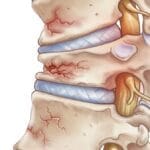An elective surgery is a medical procedure performed for a non-urgent or life-threatening condition. Numerous orthopaedic surgeries fall within this category.
Although orthopaedic issues may cause discomfort or restrict function, they typically do not pose an immediate threat to life, allowing surgery to be postponed safely.
Health Conditions That May Delay Surgery
Specific health issues can necessitate postponement of surgery, particularly those affecting respiratory function.
Here’s a condensed overview:
Asthma Symptoms:
- Severe exacerbations may delay surgery due to heightened procedural risks.
Breathing Problems:
- General anaesthesia increases the risk of breathing issues, warranting pulmonary function tests.
Common Cold:
- Mild symptoms may not affect surgery, but severe colds or infections may lead to postponement.
Contagious Illness:
- Surgery is typically delayed until the patient is no longer contagious.
Fever:
- High or unexplained fever may postpone surgery, especially during winter months.
Infection:
- Minor infections may not delay surgery, but significant infections like sepsis can.
Influenza:
- Flu may delay surgery briefly, depending on severity.
Sore Throat:
- Mild cases may not impact surgery, while severe cases may lead to postponement.
Uncontrolled Diabetes:
- Poorly managed diabetes may delay surgery due to increased risks.
Vomiting:
- Vomiting symptoms can postpone surgery due to potential complications.
These conditions require careful consideration by medical professionals to determine the safety or timing of surgery.
What actions can you take during this waiting period?
Often, nonsurgical treatments are available that can effectively alleviate painful symptoms until your surgery can be rescheduled.
For individuals awaiting orthopaedic surgery for conditions such as arthritis or sports injuries, various nonsurgical treatments can be beneficial until the surgery is rescheduled.
Here are some common strategies:
Arthritis Management:
- Modify activities to avoid exacerbating painful symptoms.
- Utilise walking aids like canes or crutches for hip or knee issues.
- Apply ice or apply heat to the affected joint for pain relief.
- Take over-the-counter NSAIDs (e.g., ibuprofen) or acetaminophen for pain and swelling control.
- Consider corticosteroid injections into the joint for temporary pain relief.
Sports Injury Care:
- Engage in exercise or physical therapy to maintain joint range of motion and strength.
- If the knee is unstable, avoid activities involving pivoting or sudden direction changes.
- Use knee supports or braces and anti-inflammatory medication for meniscus tears until arthroscopic surgery can be performed.
Spine Problems
For individuals experiencing spinal issues, delaying surgery is often possible.
Here are some nonsurgical treatments to consider:
Rest and Activity Modification:
- Avoid activities that worsen pain, such as bending or lifting.
- Opt for rest to alleviate symptoms.
Medication:
- Take nonsteroidal anti-inflammatory drugs (NSAIDs), pain medication, or muscle relaxants to manage pain.
Exercise Continuation:
- If following an exercise program, consider continuing, but be cautious.
- Notify your doctor if you are experiencing neurologic changes such as weakness, numbness, or loss of bladder or bowel control.
Carpal Tunnel Syndrome
If your carpal tunnel syndrome surgery is delayed, managing symptoms becomes crucial.
Consider the following measures:
Wrist Splint and Medication:
- Wear a wrist splint to alleviate symptoms.
- Take anti-inflammatory medication for pain relief.
Corticosteroid Injection:
- Your doctor may administer a corticosteroid injection into the carpal canal to temporarily relieve symptoms until surgery can be rescheduled.





